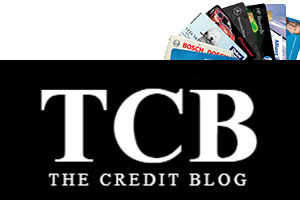Credit and credit cards can make your life less than happy, to put it mildly. But with a good credit strategy, it doesn’t have to be that way. Of course, there’s no getting around the fact that the entire concept of credit is a two-edged sword.
Most people like having a plastic card or two with high limits and low balances. Unfortunately, it doesn’t always work out that way. Too often, we’re tempted to use cards as a crutch, a way to make up for having a lower income than we wish we had.
So, what are some of the best strategies for dealing with credit cards and with credit in general? Here are some tactics that work for many folks, and they likely can work for you.

Observe the “Golden Rule” of Credit Strategy
Follow the golden rule of credit strategy, and you’ll never get in money trouble from those plastic rectangles in your wallet or purse. The credit golden rule is different than the more famous one, but it’s almost as beneficial. Here it is: “Thou shalt not spend more money on a credit card than thou can pay off in total when the bill cometh due.”
Or, if you can’t afford to pay for a charged item within the month, don’t buy it. The golden rule can be tough and can even cause you to change your entire lifestyle. But, after a few difficult months, you’ll get the hang of it, and many of your credit-related problems will evaporate.
Never Take Cash Advances on Credit and Credit Cards
Cash advances are poison. Avoid them at all costs. Card companies love you when you take one, and there’s a good reason for that. Read the fine print of the agreement and you’ll quickly see why. Card issuers earn phenomenal interest rates on advances, and you’re the one who pays those rates. If the golden rule is rule one, then “avoid cash advances” is rule two.

Use Two Cards At Most
Again, if you’re accustomed to carrying a half-dozen pieces of plastic wherever you go, weaning yourself down to just two can be a hassle and take a few months to get used to. Even so, with this credit strategy of ditching your high-interest cards and keeping no more than two (one is actually ideal), you’ll have an easier time managing monthly spending.
Use Cash and Debit Cards More Often
Debit cards are one of the “good” plastic rectangles, primarily because they don’t come with interest charges, and the money is taken directly out of your bank account. In essence, even though they look exactly like credit cards, they’re really the opposite.
Try paying all your transactions with debit or cash-cards for a month and see how much your life changes. You might be disappointed at having a low bank balance, but you won’t be running up a higher credit balance, incurring more interest charges, or risking late-payment penalties for forgetting a routine payment.
That doesn’t mean you should throw all your credit cards away; just avoid using them so much. Debit cards are an ideal, convenient way of getting the job done.

